| Our first hives Starting bee keeping is one of the greatest things we did since we moved to Canada. The idea came up when visiting friends in Salmon Arm who had about 10 hives and were so excited about it! From that moment on we were infected by the bee virus. We took a very useful course at Bill Stagg’s apiary in Tappen, BC and then watched some other friends install their first hives (we’re not so brave, we rather learn from other peoples mistakes ...). The next year we bought our first 2 hives and put them on our flat roof. We weren’t sure whether that would work. Would the bees get enough sunlight? Would we still be able to sit in our backyard without getting stung by our bees? But most of all: did we have enough knowledge of beekeeping? Learning, learning The answer to that last question is "no"! Still sometimes when I open a hive I think by myself: "looks nice huh! But what's next?". Fortunately both commercial and hobby beekeepers are nice and very helpful people. They’re always willing to help and give advice, but, as one beekeeper once said: “bees always read different books than the ones the beekeeper reads!”. This is also the thing about beekeeping that appeals to us most: every time we open a hive we learn something new. One day you think you understand bees, the other day they show you something really unexpected. |
Bad tempered bees
Every colony also has a different temperament , just like your pets: some are very friendly and docile, others are more hot-tempered and sometimes even aggressive, but just like other animals (and humans!) they have their good and bad days.
Every colony also has a different temperament , just like your pets: some are very friendly and docile, others are more hot-tempered and sometimes even aggressive, but just like other animals (and humans!) they have their good and bad days.
I remember one time we did our bi weekly check on the bees. The moment we opened the hive they acted really aggressive. I was even stung which is very unusual. The frames also didn't look good: not much brood and not much honey. We decided to leave them alone and think about what may have happened. Maybe they were queen-less? Maybe they were starving? Maybe I was checking the hive at the wrong moment? (Usually we check the hive when they're busy doing other things: gathering nectar.) Only a few days later I checked the same hive again, planning to look for the queen. This time the hive looked totally different: the bees were much more relaxed and there was even more brood and honey on the frames.
| Honey, honey Please don't think that our lack of knowledge affects the quality of the honey we sell at the market! As you may have tasted the honey our bees produce is delicious. Before we harvest the honey we always, well, sometimes, ask for advice and by now we know when to harvest (next week!) and what to look for (frames with beautiful capped honey). ... and we also know we should leave enough honey for the bees themselves to survive the winter (like they did last year!). The bees also need to be fed extra, right before and after Winter. |
Additional feeding
Most beekeepers feed their bees white, non-organic beet sugar. As cane sugar is more expensive than beet sugar we do understand, from a financial perspective, that bee keepers with many more hives than we have, choose to feed their bees white sugar.
We choose to feed our bees so-called bee tea, following the suggestions made by the founder of bio-dynamic agriculture, Rudolph Steiner. This tea is a thick, sweet tea made of cane sugar, thyme, chamomile and a little bit of sea salt (all organic). The bees seem to like it and not only does it prevent the bees from starvation, but it also helps the colony's immune system. It is also easier for the bees to digest.
Most beekeepers feed their bees white, non-organic beet sugar. As cane sugar is more expensive than beet sugar we do understand, from a financial perspective, that bee keepers with many more hives than we have, choose to feed their bees white sugar.
We choose to feed our bees so-called bee tea, following the suggestions made by the founder of bio-dynamic agriculture, Rudolph Steiner. This tea is a thick, sweet tea made of cane sugar, thyme, chamomile and a little bit of sea salt (all organic). The bees seem to like it and not only does it prevent the bees from starvation, but it also helps the colony's immune system. It is also easier for the bees to digest.
Anybody who would like to see the bees at work when we open the hives (bi-weekly from April to October) is welcome. Not all at the same time, of course, we only have a few screened hats! All you need to do is send us an email, tell us at the market or respond to this blog!
See you at the market!
Marij & Arnold
See you at the market!
Marij & Arnold

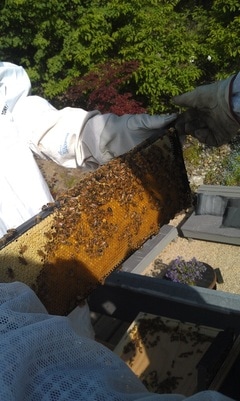
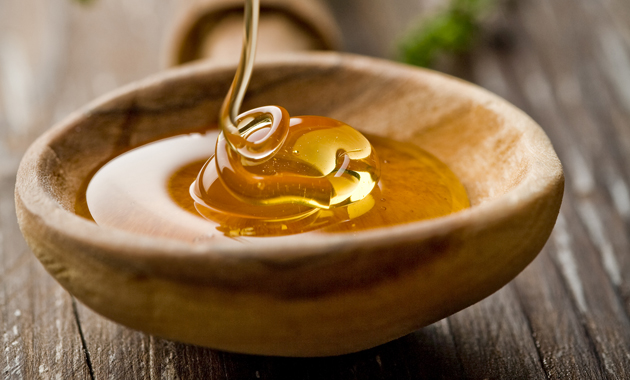





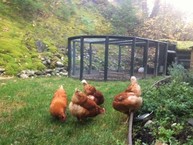
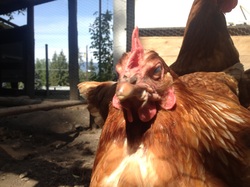
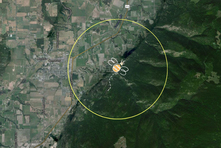

 RSS Feed
RSS Feed